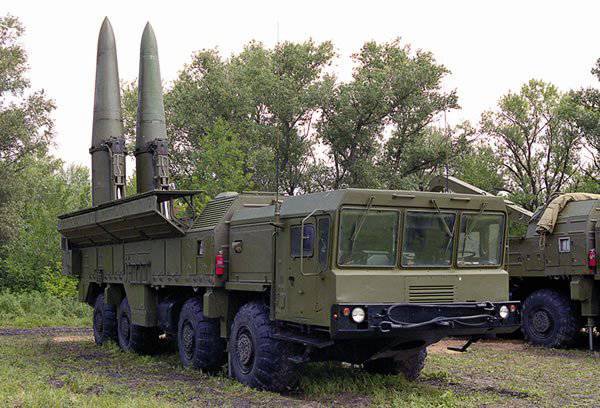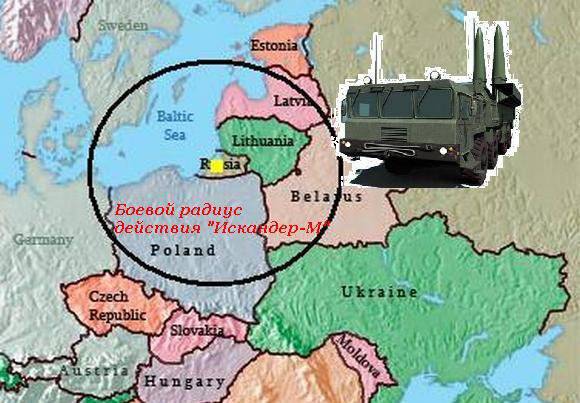Is Russia preparing a base for anti-PRO in Belarus?
This largely explains the Russian economic preferences of Minsk.

As 27 said in February at the board of the Ministry of Defense of Russia, its President Vladimir Putin, systematic attempts are being made to shatter the strategic balance in the world. In fact, the second stage of the creation of a global US missile defense system has been launched, and the possibilities of further NATO expansion to the East are being sounded.
According to the Russian leader, the dynamics of the geopolitical situation require that in the next three to five years, the Russian army should reach a “fundamentally new level of opportunities” corresponding to external threats.
It should be noted that the top leadership of Russia and its generals have repeatedly stated the anti-Russian orientation of the European echelon of the United States. So 14 December 2012, the commander of the Strategic Missile Forces (RVSN), Colonel-General Sergei Karakaev, at a meeting with journalists, once again reminded about this threat.
In his opinion, the implementation of American plans for the development of a global missile defense system with the deployment of its elements in Europe can level the Russian nuclear missile potential. And although the initiators of the creation of this system say that anti-missile weapons deployed on the European continent are designed to protect it from the Iranian threat, Moscow sees them as a threat primarily to themselves.
It is noteworthy that literally a few hours before Vladimir Putin’s speech at the collegium of the defense ministry, Russian Foreign Minister Sergey Lavrov denied the information in the press about a possible exchange between Moscow and Washington of declarations on cooperation in the field of anti-missile defense and non-directivity of the European missile defense system against the Russian strategic potential.
Following the meeting with US Secretary of State John Kerry, which took place on the evening of February 26 in Berlin, Sergei Lavrov said that the NATO missile defense system is a problem for the security of Russia and "therefore declarations are no longer enough."
Earlier, in early February, State Duma Speaker Sergei Naryshkin stressed at a meeting with deputies of the French parliament: if the European missile defense system is deployed, "we will not be able to sit idly, but this is not our choice."
Note that back in May, at the international conference “The Missile Defense Factor in the Formation of a New Security Space” organized by the Russian Ministry of Defense, in Moscow, the measures to neutralize the risks of European missile defense were already discussed. These measures were most fully described in the speech of the then Chief of the Russian General Staff Nikolai Makarov.
This list included the equipping of strategic missiles of the Strategic Missile Forces and the Navy with new highly effective combat units and complexes of means for overcoming missile defense. Moreover, as stated by General Makarov, given the destabilizing nature of the missile defense system, Russia, if necessary, can make a preemptive strike on European missile defense facilities. One of the possible options for the destruction of the missile defense infrastructure will be the deployment of new strike weapons in the south and north-west of Russia to fire missile defense systems, including the deployment of Iskander OTRK in the Kaliningrad region.
Almost immediately after the conference, information began to be thrown into the media that such missile systems could appear in Belarus. The appearance of the newest rocket armament on the border with Poland, which is going to deploy missile defense elements, was compared with a “pistol attached to the temple.”

According to a number of military experts, the deployment of state-of-the-art anti-aircraft C-400 anti-aircraft missile systems or upgraded C-300В can be another effective way of neutralizing the anti-missile threat to Russia's strategic potential. Their technical characteristics make it possible to shoot down interceptor missiles in the initial part of their trajectory.
Understanding the importance of Belarus as a springboard for combating missile defense, the Russian military-political leadership, against the background of increasing tensions with Western countries, found it possible to meet Minsk in solving its most glaring economic problems. And the current warming in relations between Moscow and Minsk is not accidental. After all, advances in economic integration, the design of the Customs Union, and then the Common Economic Space are accompanied by a clear increase in military cooperation.
An example is the entry into force of the agreement on the Unified Regional Air Defense System, the supply of the X-NUMX anti-aircraft missile brigade of the Belarusian armed forces with two batteries of the Russian Tor-M120 anti-aircraft missile system (and the signing of a contract for the purchase of another one).
Operational preparations for the Belarusian-Russian regional group of troops are carried out on a regular basis, with the development of the issues of transfer, deployment of troops, and the conduct of a joint defensive operation. The participation of Belarusian enterprises in the state defense order of the Russian Federation has been translated into practical terms.
Another thing is that during the period of the presidential company in the USA, the theme of the Belarusian-Russian military cooperation was presented in the press of both countries rather smoothly. Perhaps in order not to create problems for Barack Obama, on which Moscow put.
But now the elections in America are over, and the issues of strategic interaction between Minsk and Moscow are likely to come to the fore again. Moreover, there is an operational reason for this - the preparation and holding of large joint exercises “West-2013”, the active phase of which will take place on the territory of Belarus.
Source: “Belarusian news»
Information